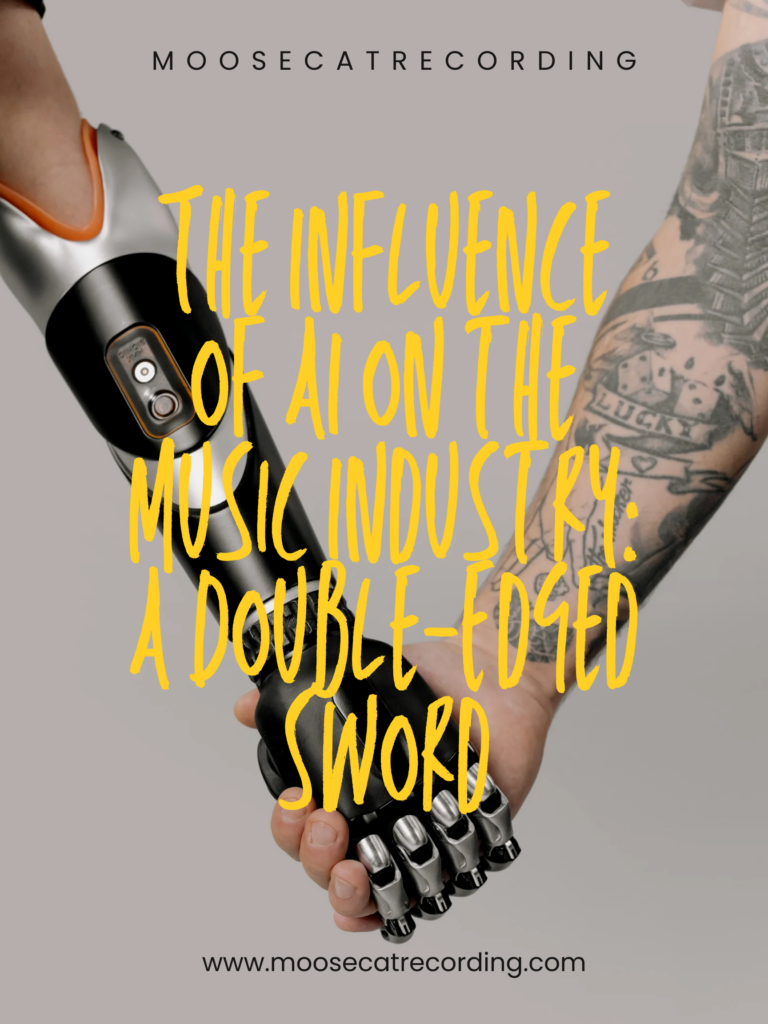The Influence of AI on the Music Industry: A Double-Edged Sword

The Influence of AI on the Music Industry: A Double-Edged Sword
The music industry is currently experiencing a shift due to the presence of intelligence. While AI brings opportunities for enhancing creativity and efficiency it also poses challenges. This piece will delve into the advantages and drawbacks of AI’s impact on the music sector and discuss measures aimed at safeguarding musicians’ rights.
Pros: Elevating Art and Creativity
AI-driven tools such as Amper Music, AIVA, and IBM Watson Beat are transforming music creation by enabling musicians to compose music through inputs generating compositions for further refinement. These tools democratize the process of making music allowing even individuals without training to produce top-notch tracks. AI algorithms utilized by platforms like Spotify and Apple Music analyze user preferences to curate custom playlists aiding listeners in discovering music tailored to their tastes while broadening exposure for niche genres. Moreover, AI facilitates collaborations between humans and machines. Exemplified by artists like Taryn Southern. Leading to musical genres and styles that enrich the artistic landscape. Furthermore, AI simplifies music production tasks by automating processes such as mixing and mastering offering feedback, and enabling artists to concentrate more on creativity rather than technical aspects ultimately increasing the production of high-quality music content.
Cons: Challenges and Controversies
The integration of AI into music production does pose challenges and stirs up debates. It impacts jobs in the industry potentially diminishing the roles of engineers, producers, and musicians. The ethical and legal implications of AI-generated music are significant, raising concerns about ownership rights and royalties. This calls for laws to ensure compensation and to protect intellectual property rights. Critics argue that AI-created music may lack the touch leading to questions about its resonance and authenticity. Moreover using listener data for recommendations raises privacy issues emphasizing the importance of handling data to maintain trust between consumers and music platforms.
Legislative Efforts: Protecting Workers and Art
Legislative initiatives are crucial in safeguarding both workers and artistic creations in this evolving landscape. Revising intellectual property regulations is necessary to define authorship, ownership, and royalty distribution for music produced with AI assistance. Protecting workers in the music sector involves creating opportunities like roles for AI specialists to assist those affected by shifts. Establishing guidelines for AI use in music ensures its application while maintaining the integrity and authenticity of musical expressions amidst technological advancements.
Conclusion: Navigating the Future
In conclusion, navigating the impact of AI on the music industry requires a balance between embracing innovation while preserving human creativity. By embracing the possibilities of AI and enacting considered laws the field can guarantee the sustained flourishing of both artistic expression and artists, in this era of artificial intelligence. AI is a tool and not the artist!
